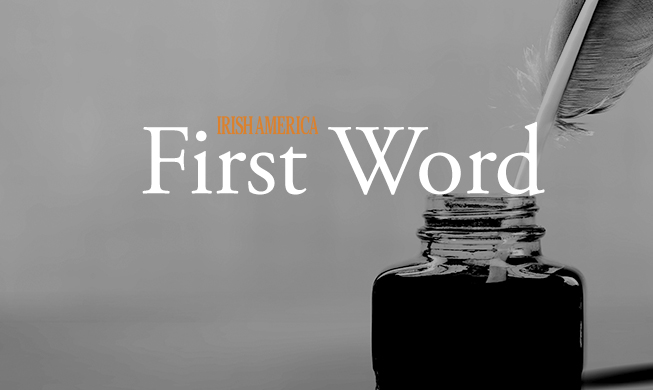
Once again, Northern Ireland dominates headlines, both in Ireland and internationally. The Manchester IRA bomb was a huge blow for the peace process and set back support in the U.S. for Sinn Féin. Once again, Gerry Adams has to answer whether or not he can bring about a ceasefire.
But the IRA is not the only problem. Day after day, it seems it is one step forward and two steps back. Earlier this year the U.S. government stepped in to smooth over the arms handover obstacle by sending its envoy, former Senator George Mitchell, to find a solution. His sensible solution met with disapproval from unionists and the British, and so elections were imposed before talks could start.
The British and Irish governments then agreed that Senator Mitchell should chair the multi-party talks in Belfast. The unionists said no, and then agreed on the basis that they decide what Mitchell’s role would be. The governments wavered and the wrangling continued. At times they appeared to be considering giving in to the bullying tactics of those who wanted to block Mitchell’s appointment. Every time our hopes are raised, it seems, they are just as quickly dashed by either political prevarication or new acts of violence such as Manchester and the shooting death of an Irish policeman in an attempted IRA robbery.
But it’s time that all politicians from every party concerned realized on whose behalf they are supposed to be negotiating. And those are all the people in Ireland, North and South, the people in the UK, and all those belonging to the Irish Diaspora. Recent opinion polls conducted in Ireland show that 93 percent of the people want peace. Yet, the men who have been entrusted by them to put their cases have been blatantly showing their respective electorates that the only thing that matters is their political self-interest.
British prime minister John Major has been operating with the political life support machine of unionist votes for some time, and is obviously determined to keep that support by whatever means necessary. Taoiseach John Bruton, after showing a steady hand prior to Manchester, has once again begun singling out only the IRA as the problem. Some in his own party, Fine Gael, are calling for him to cut off all contact with Sinn Féin. Such a move would be a recipe for disaster.
Meanwhile, Ian Paisley of the hardline Democratic Unionist Party fears the threat to his personal fiefdom that change would bring, and David Trimble, Ulster Unionist party leader, looks set to continue with obstructive politics unless he gets his way.
At times, the only people who have shown real political leadership in this entire convoluted process are the representatives of the paramilitaries. They are the ones who were on the front lines and in the prisons. They are the ones whose families buried the dead. They are the ones who never had the money, the connections, or the chance to affect their own futures politically in the past. And they are the ones who are willing to sit down with each other, talk to each other, and find common ground. They are apparently the only ones willing to take their problems inside Castle Buildings in an attempt to hash out a solution.
A former IRA prisoner in Long Kesh told me that a prison committee comprising loyalists and IRA members was formed in the 1970s to deal with common issues, such as visiting hours etc. He wondered why that kind of collaboration could not be continued outside prison walls.
The real politics of Northern Ireland have been played out not in the corridors of power but in the back streets and alleys for the last three decades. The people there want a settlement, and they want it now. And the sooner political leaders realize that the better.
One loyalist leader told me that when the all-party talks began, the intention was to immediately hold a summer recess. He was disgusted at the thought, and rightly so. There should be no summer recess. Those mandated to negotiate on behalf of the people should sit around that table until a final acceptable settlement is hammered out. There should be no break so unionists can march in triumph on July 12 to celebrate the Battle of the Boyne. There should be no break so nationalists can commemorate their historical achievements. There have been enough delays, there has been enough bitterness, there has been enough talking about talks. The American administration put itself on the line in order to help effect change, and without that help the peace process would not exist. We are approaching the end game here, and those who do not grasp this historic chance will not be treated lightly by history. Those who squander the chance of the next generation to have a normal life will find that the people will remember that when they vote again. As we say in America, enough already.


Leave a Reply